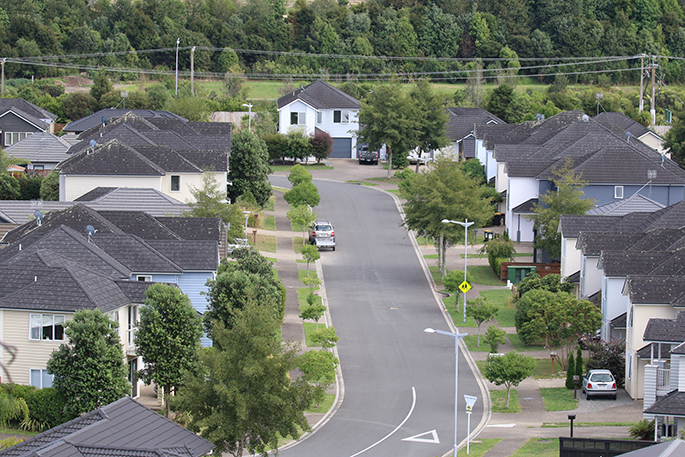The cost of housing the homeless in short-term accommodation appears to be trending down but is still costing the country more than $300 million a year.
In the five years from 2018 to 2022, the Ministry of Social Development spent $1.48 billion on emergency housing grants – jumping from $52.42 million in 2018 to a peak of $374.17m in 2022, data released under the Official Information Act shows.
The grants are paid directly to accommodation providers to house people looking for transitional housing or rentals and $254.93m has been spent in the year to September 2023.
At this rate, the annual figure for 2023 is likely to land around $340m – a nine per cent reduction on the 2022 peak.
Ministry group general manager housing Karen Hocking says people who received the grants did not have access to other accommodation adequate for them or their family’s needs.
People are often put up in motels or other similar quarters for up to seven nights, but that could be extended depending on individual circumstances, says Hocking.
And while the new National, Act and New Zealand First coalition government has promised to fast-track families out of emergency housing into permanent homes more quickly, the demand is still high.
Hocking says many people are “experiencing a severe and immediate need”.
“This demand is generated by a shortage of affordable housing driving up house prices and rents.”
Hocking says some people struggle to access long-term solutions, so they might end up receiving the grants for a longer period.
The data also shows some of the motels being used are being paid millions under the scheme.
The highest paid, Anglesea Motel & Conference Centre in Hamilton and Mcentral Apartments Manukau, have received $26.19m and $25.68m respectively.
This reflects the fact Auckland and Waikato have the highest number of people living in emergency accommodation.
In the Super City alone there were 2466 people in September, of which 1101 were adults and 1365 children.
Hosking said the Ministry recognised motels were not a long-term solution or the solution MSD wanted to deliver for people who were potentially in a vulnerable situation.
“They provide a short-term solution while more sustainable options are progressed.”
It’s a view shared by Katrina Taikato, the general manager of Fountain Court Motel Tauranga, which is part of the Fountain Court Motel group that has received $13.55m since 2019.
Taikato says the motel was able to make a profit out of the grants but, on a personal note, she thought this is not where the government should invest the money.
She says hundreds of people in need of emergency housing have stayed through the years, mostly families with kids.
And while she’d had to kick people out at times and faced a couple of challenges over the years, these were not worse than what had been seen with tourists.
Taikato says it felt good to help people and it gave her the idea of having built a sort of family village.
“There’s quite a few that have come through the place and go on to find a new home and stuff [but] they’re always replaced with somebody else.
“There is always someone else on the list that needs help,” she says.
The emergency housing grants are just one of the ways the housing crisis is being tackled in New Zealand and before finding a stable and private home, people in emergency housing usually go through a period of transitional housing while learning valuable skills.
However, the transitional housing programme is handled by Kāinga Ora, the Ministry of Housing and Urban Development and the Ministry of Social Development.
One of the organisations providing this support is the Monte Cecilia Trust, which worked with 1808 Auckland families in the last financial year, delivering transitional and community housing.
Chief executive Vicki Sykes says as well as providing a place to live, people were also helped to gain financial and life skills.
“Sometimes that takes the form of budgeting workshops to help them make their money stretch further, sometimes it means helping them work toward a better career or start their own business.”
She says the trust currently manages 625 properties across the Auckland region, of which 250 were transitional houses, and 375 community houses.
Sykes says the trust works alongside landlords who lease properties to the trust to tackle the housing crisis in New Zealand.
“Ideally, if there was enough suitable houses for all New Zealanders, no-one would need to live in emergency housing.
“The current model is expensive and unsatisfactory for all. We would urge the new government to talk with the community housing sector which can provide a range of workable and more cost-effective solutions.”



0 comments
Leave a Comment
You must be logged in to make a comment.